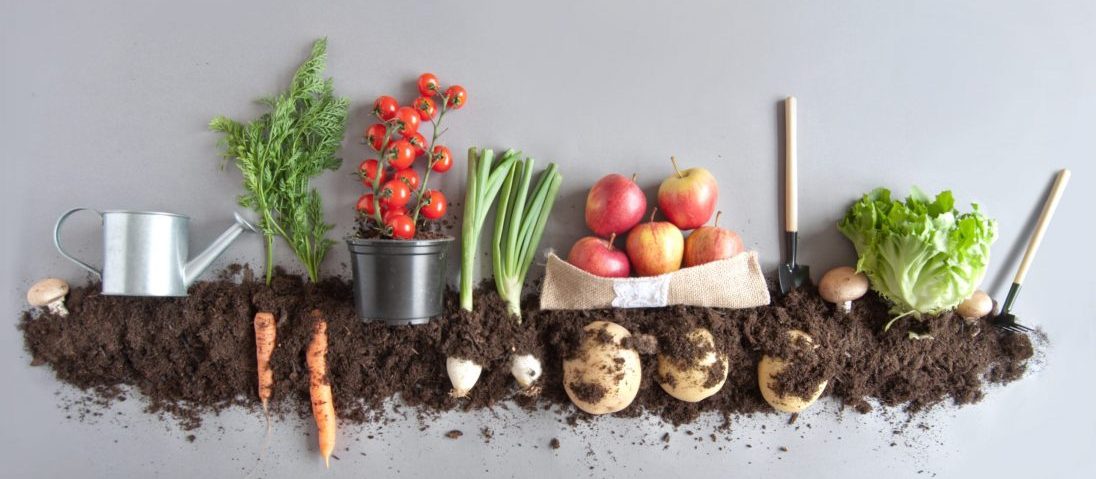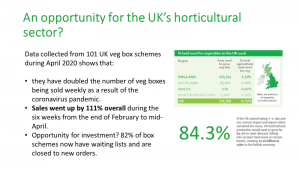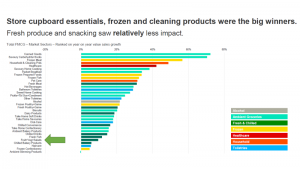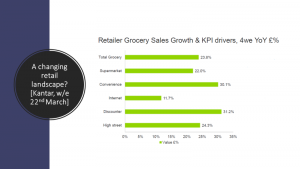
Praise for the UK food industry
During questions to Defra ministers in the House of Commons yesterday, Defra Secretary of State Rt Hon George Eustice MP was keen to praise the efforts of the food supply chain over the last weeks to keep the nation fed. He remarked that “our food manufacturers increased output by some 50%”. He also said “the crisis has brought home the crucial importance of domestic food production. We are fortunate to have some of the most innovative food manufacturers and producers in the world, and I pay tribute to all they have done in recent months.”
Food Standards Agency guidance
This guidance from the FSA relates specifically to food production
Further guidance: although this guidance which is intended for use in factories, it has got some useful information about how to deal with potential COVID 19 risks in the workplace.
GLAA support for farms
The Gangmasters and Labour Abuse Authority has contacted agricultural labour sites across the south of England and Wales to offer support during the coronavirus pandemic.
Advice on how to spot the signs of labour exploitation and where to report concerns has been issued ahead of the GLAA visiting farms directly over upcoming weeks to give further guidance to the industry.
The engagement activity ties in with the temporary licensing scheme established by the GLAA for the food production sector in March, the agency said.
Temporary licences are currently being granted to businesses operating within the wider labour supply industry who wish to support GLAA licence holders to feed the nation.
Phase two of the operation will see GLAA investigators conduct welfare visits to ensure that farmers are getting the help that they need and that their workers are not at risk of exploitation.
Public Health Measures for all UK arrivals
On Friday, 22nd May, the Home Office announced border measures that will be applied to all international arrives from the 8th June and reviewed every 3 weeks. The reasoning behind the measures is to manage the risk of transmission being reintroduced from abroad to avoid a second wave of infection.
Alternative quarantine arrangements have been put int place in “recognition of the critical contribution seasonal agricultural workers in the edible horticulture sector make to the food supply chain and the time criticality of the picking season.” Full information on how these measures will work will be available shortly. In essence, during the first 14 days of a workers arrival, they will be able to work but they will be required to stay on the farm; there will be a set of defined exceptional circumstances available with the full guidance.
If you have any queries please direct them to accesstolabourfoodchain@defra.gov.uk .
Online Grocery sales up by 33%
The UK’s online grocery market will expand by a third in 2020, according to projections by Mintel, and will be worth £17.9 billion by 2024. Moreover, the changes to consumer behaviour brought about by the Covid-19 pandemic, are likely to be long-lasting. UK consumers are expected set to spend £16.8 billion on internet groceries in 2020, up from £12.7bn in 2019. This comes after growth had been slowing down since 2015, reaching just 2.9% in 2019.
The Mintel survey was carried out between 28 February and 23 April and found that 36% of British consumers reported increasing their online shopping, with 50% trying to limit the time they spend in bricks-and-mortar stores and 9% using click-and-collect more frequently.
Amazon – Is this the next big disruptor in the grocery market
In the face of growing demand for online groceries, Amazon has announced plans to launch a super-fast delivery service of fresh products in the UK, reports The Grocer. The service will be free for Prime subscribers and is aimed at bringing rapid grocery delivery to nearly 40% cent of the country’s households by the end of 2020. The Ultra Fast grocery delivery service is already available to Prime members in the US.
Amazon is making this move at a time when the UK’s largest online grocer Ocado is reported to be struggling to open additional delivery slots due to unprecedented demand during the coronavirus lockdown and has been forced to limit delivery slots to existing customers only.
Could home delivery of fruit and veg become part of the new normal.
Source:- The Food Foundation

Stay safe in these difficult times.
British Growers Team






